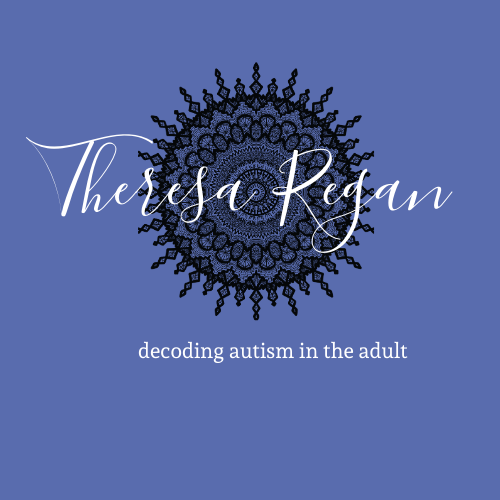Talking About Autism: Navigating Emotional Atmospheres
Description
Join Dr. Regan for the second episode of the series "Talking About Autism." This episode focuses on how the thoughtful navigation of emotions during conversations about autism can create space and freedom for more discussions.
New Course for Clinicians - Interventions in Autism: Helping Clients Stay Centered, Connect with Others, and Engage in Life
New Course for Clinicians: ASD Differential Diagnoses and Associated Characteristics
Dr. Regan's Resources
Book: Understanding Autism in Adults and Aging Adults, 2nd ed
Audiobook
Book: Understanding Autistic Behaviors
Autism in the Adult website
Resources for Clinicians
Read the transcript:
00:00:05,740 --> 00:00:06,480
Hello,
3
00:00:06,490 --> 00:00:12,460
This is Dr Theresa Regan. Thank you for joining me for this episode of Autism in the Adult.
4
00:00:13,140 --> 00:00:19,260
I am happy that you're joining us for this series called Talking about Autism.
5
00:00:19,270 --> 00:00:37,150
This is the second episode, and I had originally predicted it was going to be about talking to others when you see autistic characteristics in them and you wonder if a diagnostic evaluation would be helpful for them?
6
00:00:38,740 --> 00:00:44,170
What happened is that, as I'm mulling around the topics for the series,
7
00:00:44,180 --> 00:00:49,560
I really couldn't get my mind off what was going to be the 3rd episode --
8
00:00:50,140 --> 00:00:56,260
which I'm going to call "navigating emotional atmospheres"... when we're talking about autism.
9
00:00:57,040 --> 00:01:13,790
And I've come to the conclusion that I'm going to cover that topic here in the second episode because I feel like it's really important to consider before we talk to other people about autistic characteristics.
10
00:01:13,790 --> 00:01:20,860
How would we navigate the emotions that are sometimes present around the topic itself?
11
00:01:21,640 --> 00:01:39,160
Last episode we talked about Talking About Autism when you are on a journey toward evaluation yourself ... when you're considering that, or when you have a new diagnosis and you might want to talk to people about your diagnosis and about autism.
12
00:01:40,640 --> 00:01:40,960
So,
13
00:01:40,960 --> 00:01:50,260
this episode is going to be focused a little bit more on navigating the complexity of people's emotional responses.
14
00:01:50,740 --> 00:01:54,850
And as we talked about in the first episode,
15
00:01:54,850 --> 00:02:03,690
it really is an emotionally charged topic and in some ways that's a bit mystifying to me.
16
00:02:03,700 --> 00:02:12,650
... the amount of emotion people have about a topic that sometimes they're not even really impacted by on a personal level,
18
00:02:15,840 --> 00:02:22,160
but talking about autism often does involve navigating emotional atmospheres.
19
00:02:22,780 --> 00:02:23,000
Um,
20
00:02:23,000 --> 00:02:27,760
and it's hard to predict what the atmosphere is going to look like or how complex it is.
21
00:02:29,040 --> 00:02:38,010
Sometimes the atmosphere may be charged because we would like to talk to someone about the topic and how it impacts,
22
00:02:38,010 --> 00:02:38,690
let's say,
23
00:02:38,690 --> 00:02:40,110
our own family,
24
00:02:40,120 --> 00:02:44,600
or how it impacts someone in the family or how it impacts you.
25
00:02:44,610 --> 00:02:51,730
And there can just be this unusual response of
26
00:02:51,740 --> 00:02:53,630
a lot of emotional charge.
27
00:02:53,640 --> 00:03:04,360
I spoke with a young woman recently who was saying that she was shocked at how angry people in her family were when she brought the topic up.
28
00:03:04,940 --> 00:03:10,160
And that is not an unusual thing for someone to share, that
29
00:03:10,170 --> 00:03:12,310
it can really charge people up.
30
00:03:12,320 --> 00:03:13,660
And um,
31
00:03:14,350 --> 00:03:17,440
sometimes you're not just bringing up a topic,
32
00:03:17,450 --> 00:03:22,560
you're bringing up
More Episodes
Join Dr. Regan for the fifth episode of the Lifespan of a Household series. Today's episode focuses on topics important to autistic individuals who are parenting young children.
Autism in the Adult website
Resources for professionals
Video Visits
Video Courses
Published 10/19/24
Join Dr. Regan for the 4th episode in the Lifespan of a Household series. Today's episode focuses on topics important to the autistic individual who is preparing for parenting.
Autism in the Adult website
Resources for professionals
Video Visits
Video Courses
Published 10/06/24
Published 10/06/24


